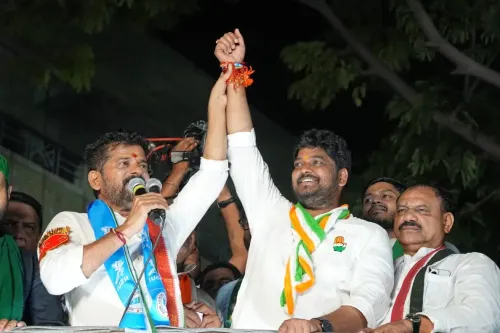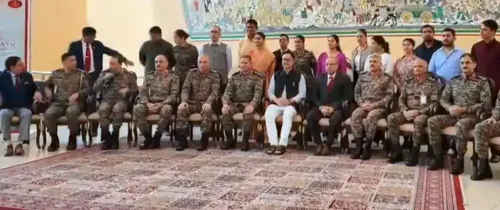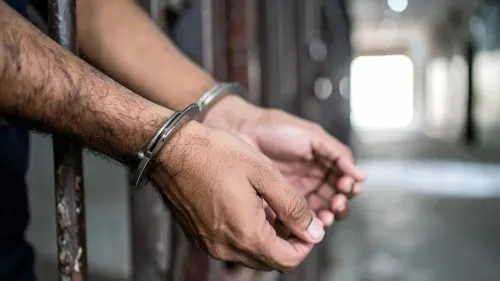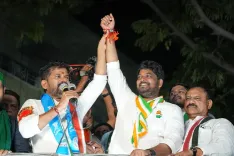Manoj Sinha to Lead High-Level Security Discussion in Srinagar
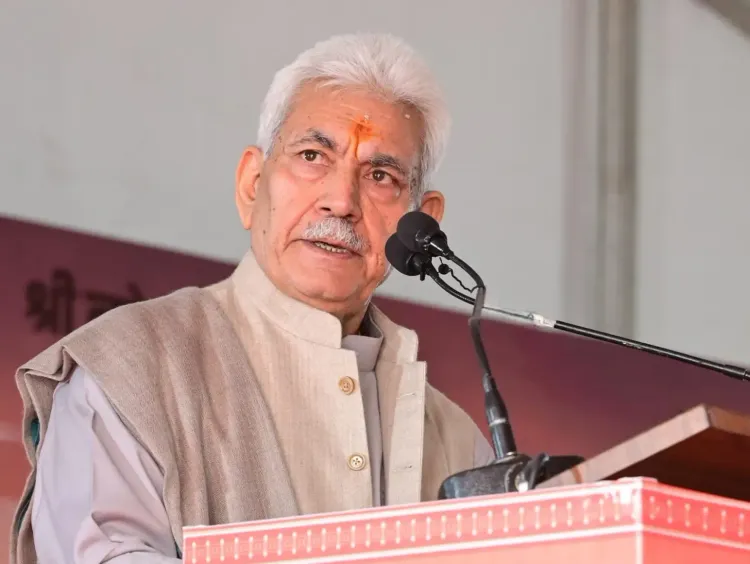
Synopsis
Key Takeaways
- Lt Governor Manoj Sinha chairs unified command security meeting.
- The focus is on counter-terrorism operations and infiltration threats.
- Discussion includes challenges posed by drug abuse in the region.
- The meeting follows a significant security conference in Delhi.
- Emphasis on dismantling the terror infrastructure and addressing OGWs.
Srinagar, Feb 12 (NationPress) Jammu and Kashmir's Lieutenant Governor Manoj Sinha is set to preside over a significant unified command security meeting today in Srinagar city.
This meeting follows a recent security conference chaired by Union Home Minister Amit Shah in Delhi, which saw participation from senior officials of the CRPF, BSF, and other agencies.
The unified command refers to the premier security framework in Jammu and Kashmir, encompassing the Army, CAPFs, J&K Police, as well as central and state intelligence organizations, along with senior bureaucrats from the Union Territory's administration.
According to officials, the objective of this meeting is to address crucial security issues, such as counter-terrorism operations, infiltration threats, and the escalating problem of drug abuse in the region.
In Jammu and Kashmir, law enforcement, security operations, and central services like IAS/IPS come under the direct supervision of the Lieutenant Governor.
Manoj Sinha, the inaugural L-G of Jammu and Kashmir, has consistently advocated for dismantling the terror infrastructure. He asserts that merely counting the number of terrorists eliminated in anti-terror operations will not eradicate the terrorist threat unless the over-ground workers (OGWs) and terrorist sympathizers are addressed.
The Lieutenant Governor has been a staunch advocate for a comprehensive strategy to combat terrorism, emphasizing that the roots of this menace are intertwined with drug trafficking, hawala networks, religious indoctrination, the enticement of unemployed youth through anti-national propaganda, and the support from individuals functioning in the ‘grey area’.
Intelligence agencies categorize these so-called civilians operating in the ‘grey area’ as having no direct links to terrorism yet acting as ideologues and promoters of separatism and secessionism. “The individuals in the ‘grey area’ form a crucial support system for terrorism, and as long as such elements are permitted to function within the oversight of security forces, the number of terrorists eliminated will only have limited significance,” remarked a senior central intelligence officer.

